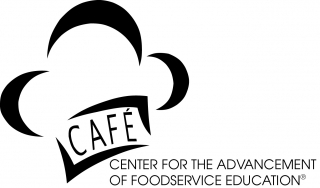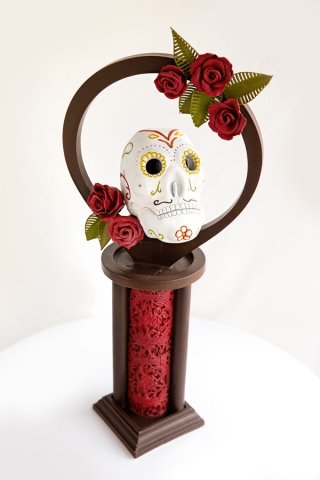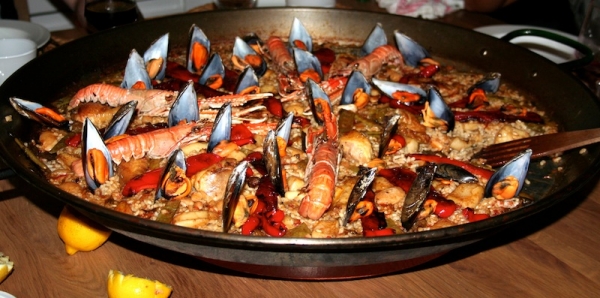
CAFÉ: A Culinary Instructor’s Classroom Instruction Partner
02 January 2024Are you a pastry instructor teaching chocolate? Are you explaining umami to students? Are you a culinary arts director considering curriculum changes? CAFÉ can help with that.
By Lisa Parrish, GMC Editor
Feedback & comments: This email address is being protected from spambots. You need JavaScript enabled to view it.
CAFÉ’s mission is to link foodservice educators with foodservice experts. We cover culinary topics from many different angles including in-depth resource articles; podcast discussions with experts sharing facts, insights and opinions; a YouTube channel with teaching videos ready for the classroom; in-person meetings featuring the best practices in culinary education and much more. Read on to discover examples of how CAFÉ provides a plethora of up-to-date information on culinary education foundational topics.
 Resources related to teaching chocolate
Resources related to teaching chocolate
A quick search of CAFÉ’s website shows there are more than 10 pages of articles, podcasts and videos helping educators teach the world of chocolate to up-and-coming culinarians. For instance, CAFÉ Talks recently posted an interview with Pastry Chef and Chocolatier Josh Johnson of Guittard Chocolate where he took listeners on a journey following the cacao bean to its destination as chocolate in a professional kitchen. In the interview, host Paul Sorgule and Chef Johnson explore how chocolate stems from the agricultural product cacao and how it exhibits the same complexities and variances as grapes and wine.
Also, instructors can read the GMC article, “Understanding Chocolate’s Nuances,” where Chef Johnson details the complexity and nuances of chocolate as a baking ingredient. The article explains the difference between chocolate for confections and cookies. (Hint: It has to do with the level of fat or cocoa butter in the chocolate.) The tutorial article goes on to convey how and why a chef would temper chocolate.
Another aspect of chocolate, that of sculpting, is covered by Amanda Miller, culinary arts/baking and pastry arts instructor at the Culinary Institute of Michigan – Muskegon, which is a Division of Baker College. She was a contestant on the inaugural eight-episode season of “School of Chocolate” featuring French pastry chef Amaury Guichon. She wrote about the mesmerizing aspect of sculpted chocolate and how her experiences in creating gravity-defying sculptures have helped her become a better culinary instructor.
Umami is both ubiquitous and not understood by many culinary students
Umami was discovered in the early 1900s but did not become the official fifth flavor until 30 years ago. Identifying flavors and expanding a student’s palate is a foundational concept of culinary education. Of all the flavors, umami seems to be the one that most students have trouble recognizing. CAFÉ offers several resources to help instructors explain the complexities of this flavor.
Chef Andrew Hunter, executive chef for Kikkoman and Niman Ranch, and research and development chef for Wolfgang Puck Worldwide, has offered his umami expertise to CAFÉ on several occasions. For example, he was recently featured on an episode of CAFÉ Talks discussing umami’s aspects of savory or deliciousness. He said that regardless of how you reference it, umami is an important part of the flavor formula that chefs seek to unlock. Salt, sweet, sour, bitter, umami and context play equal roles in determining the flavor experience that individuals have with food.
Chef Hunter also lent his experience and wisdom in understanding umami when we was interviewed for a GMC story on global flavors and why they are showing up on menus across the nation and which country’s flavors will take off next.
Finally, umami expert Chef Chris Koetke of Ajinomoto Health and Nutrition was featured in a 30-minute video discussion on Coffee with CAFÉ. He presented the chemical breakdown of the amino acids that give umami its flavor, how MSG is a safe and flavorful cooking agent imparting umami flavors, and examples of ingredients filled with umami.
“Inventing the Future” for deans and directors
CAFÉ will host the 10th annual Deans and Directors Retreat on June 18 and 19 at Alamo Colleges District St. Phillips College in San Antonio. The theme of this year’s event, “Inventing the Future,” will be conveyed through a series of keynote, panel and round table discussions. Attendees have the option of staying for the Leadership Conference which will include an Industry Outreach day as well as an Educational Best Practices day. Click here for more information and to register for one or both events.
